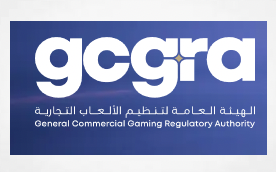The National Law Review
The United Arab Emirates (UAE) is taking the plunge into gambling, with the publication of commercial gaming regulations and licensing materials. The good news for interested investors and licensees is that the regulatory and licensing framework is similar to mature U.S. jurisdictions such as Nevada and New Jersey. The UAE is comprised of seven Emirates, Abu Dhabi (the federal capital), Dubai (arguably the most well-known), Ajman, Fujairah, Sharjah, Ras Al Khaimah and Umm Al Quwain.
At present time, gambling officially remains illegal under UAE federal law. But with the introduction of the General Commercial Gaming Regulatory Authority (GCGRA), and the government’s clear support for introducing gaming, it appears likely these conflicts will be resolved soon.
The GCGRA, established in September 2023, is the UAE’s federal authority overseeing all aspects of commercial gaming and gambling within the country. It holds exclusive rights to regulate, license, supervise, and enforce gaming regulations. The GCGRA Board includes experts in gaming, sports betting, and related legal areas, led by Chairman Jim Murren, former CEO of MGM Resorts International and a member of the American Gaming Association’s Hall of Fame. The GCGRA also oversees enforcement of gambling-related regulations.
Supported by an Executive Management team with extensive industry and regulatory experience, the GCGRA leverages its extensive expertise to effectively launch and regulate gaming activities in the UAE. The GCGRA’s regulatory scope includes table games and gaming machines like those typically found in a casino, internet gaming, lotteries (whether for cash or prizes), and sports/event wagering.
However, the GCGRA does not regulate the marketing activities of gambling operations.
The GCGRA issues five types of licenses divided into two categories: entity licenses and individual licenses. Entity licenses cover Gaming Operators, Gaming-Related Vendors, and Key Person Corporate entities, while individual licenses are for Key Person Individuals and Gaming Employees. Applicants must notify the GCGRA of their intention to apply and complete a specified application process, paying applicable fees. Licensees must comply with various obligations related to financial crime prevention, advertising standards, supervision cooperation, responsible gaming frameworks, and technical standards.
The licensing regime in the UAE should be a familiar one to many U.S. operators and vendors looking to do business in the UAE. The GCGRA has published a comprehensive licensing guide which provides information on the licensing process as well as important definitions as to who must be licensed and ultimately subject to the GCGRA jurisdiction including a definition of “control” for purposes of mandatory licensing – an important consideration for the corporate structure and ownership of a company seeking to enter the UAE market. Like many other jurisdictions the burden will be on the applicant to demonstrate by “clear and convincing” evidence their eligibility for licensure including overall suitability.
One possible risk to keep in mind: Under the current structure, the GCGRA retains a great deal of authority and discretion to determine who is meeting standards and who is not. While this is not unlike other jurisdictions, at this time there are no stated formal means of appeal should an applicant or operator disagree with a GCGRA compliance decision.
In addition, the GCGRA has also adopted many of the same standards for certifying games (“GLI Standards”) that are used in jurisdictions across the globe. While the framework is the same, to date, the GCGRA appears to employ a general standards approach instead of a prescriptive approach. In other words, the GCGRA sets expectations, but not the details of how to meet those expectations—an approach generally favored within the gaming industry.
Also similar to many other jurisdictions, Responsible Gaming will be a central focus of the GCGRA in assessing applications and ongoing compliance. Again, the GCGRA has provided detailed guidance on its expectations for responsible gaming in a Responsible Gaming Framework. The Framework sets out the purpose of the Responsible Gaming requirements as well as the minimum requirements. While detailed, the Framework is not prescriptive in how to meet the principles and goals, providing potential openings for innovation and technology. The GCGRA requires reporting on responsible gaming and the tracking of certain player data.
The UAE and other high-wealth Gulf Cooperation Council (GCC) nations have made international tourism a top priority. For example, neighboring Qatar hosted the 2022 World Cup, an event which drew approximately one million foreign visitors to the country. Casino gambling may be a logical next step in growing the region’s tourism industry, and it is possible that neighboring GCC states may look to get in the game, too.
The entry of the UAE into the international gambling arena is a major development—and one that potentially presents major opportunities for investors in the industry. The Womble Bond Dickinson team will continue to monitor these developments, but please reach out to us with any questions or should you require support in better understanding the potential opportunities presented by these developments.
Kelly Tymburski, Senior Legal Consultant and Principal of SPR Advisors co-authored this alert.





